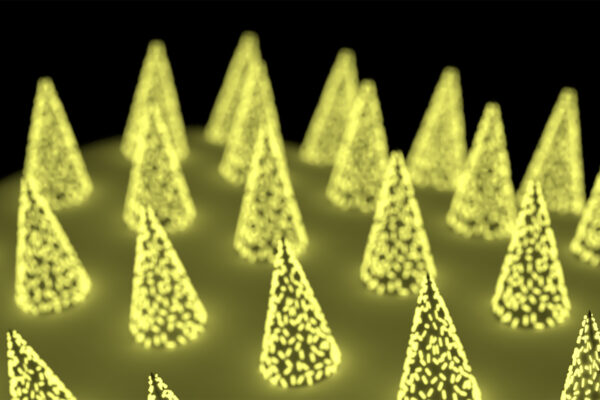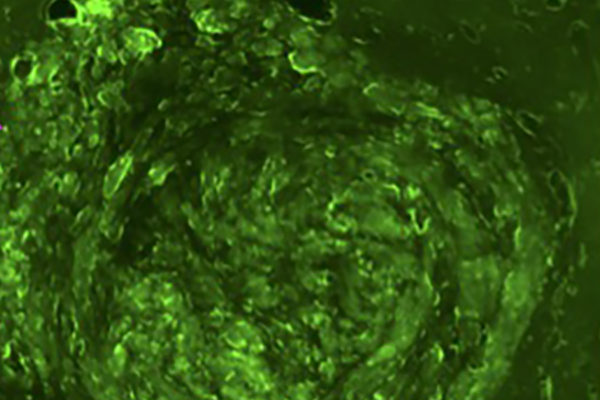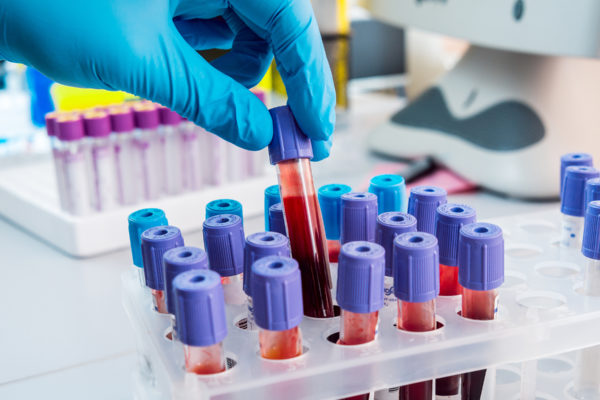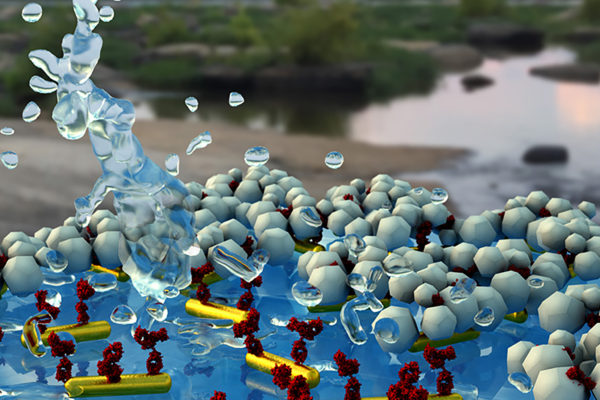No more needles?
WashU engineers have developed a biosensing microneedle patch that can be applied to the skin, capture a biomarker and, thanks to its unprecedented sensitivity, allow clinicians to detect the biomarker’s presence.
Noninvasive brain tumor biopsy on the horizon
Taking a biopsy of a brain tumor is a complicated and invasive surgical process, but a team of researchers at Washington University in St. Louis is developing a way that allows them to detect tumor biomarkers through a simple blood test.
Simplifying samples
Using nanotechnology, a team of researchers at Washington University in St. Louis has eliminated the need for refrigeration for biomarkers used in medical diagnostic testing. The researchers recently gave their new tech a real-world test by sending it through the mail.
Storing and testing at any temperature
Engineers at Washington University in St. Louis develop new nanoparticle technology that eliminates the need for cold storage in some medical diagnostic tests.
Autistic young adults missing out on much-needed services
What happens to young adults with autism spectrum disorders (ASDs) once they graduate high school and are no longer entitled to services? In a first-of-its-kind study, Paul Shattuck, PhD, assistant professor at the Brown School at Washington University in St. Louis, looked at rates of service use among young adults with an ASD during their first few years after leaving high school. He found that 39.1 percent of these youths received no speech therapy, mental health, medical diagnostics or case management services. Shattuck also found that the odds of not receiving any services were more than three times higher for African-American young adults compared with white young adults and more than five times higher for those with incomes of $25,000 or less relative to those with incomes over $75,000.




